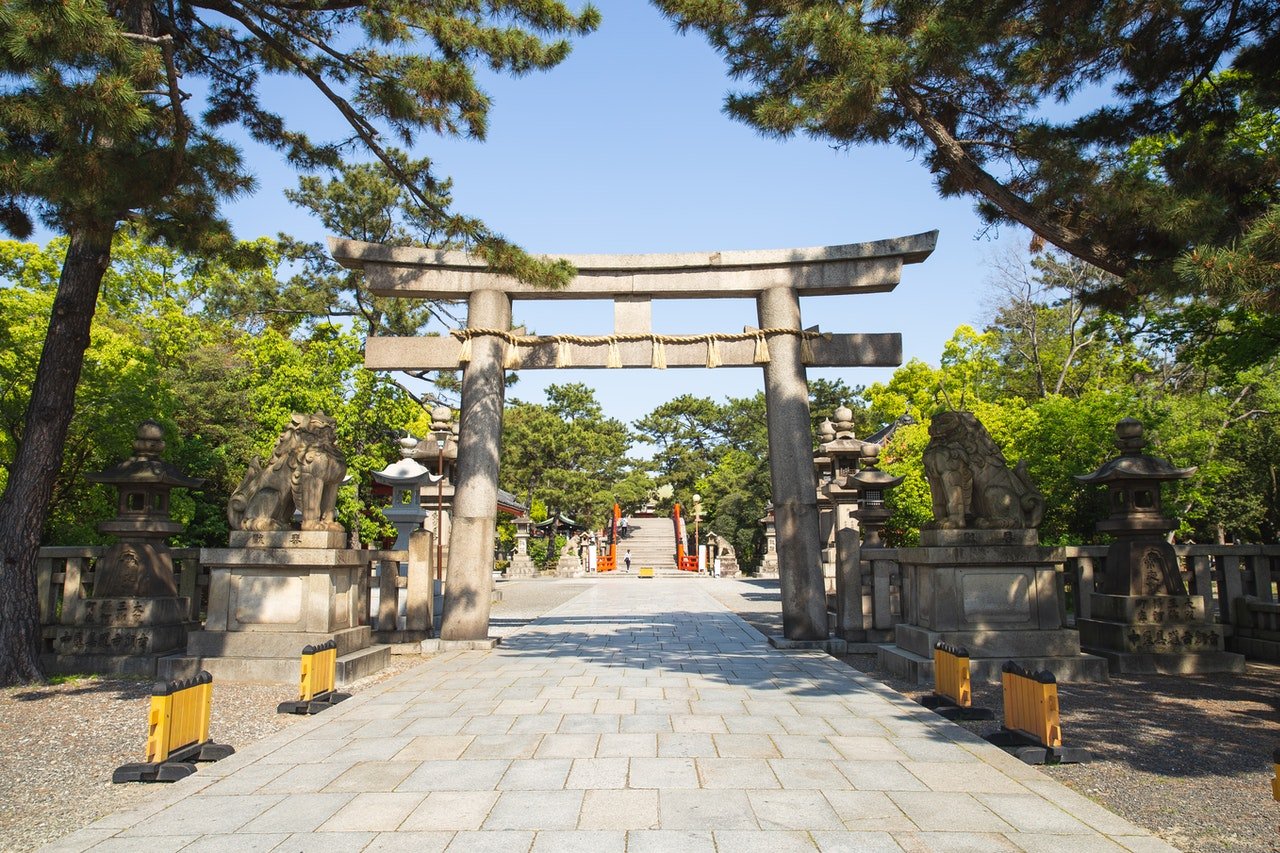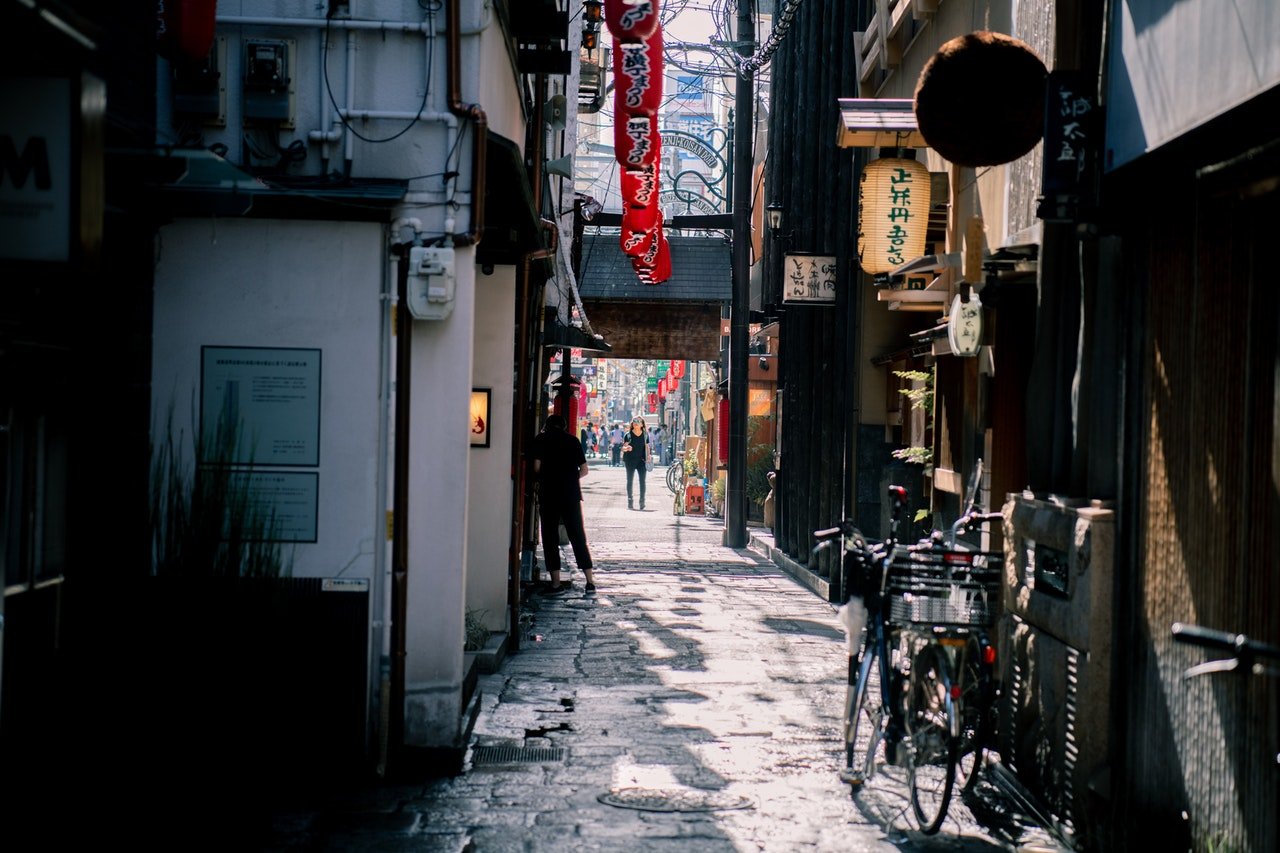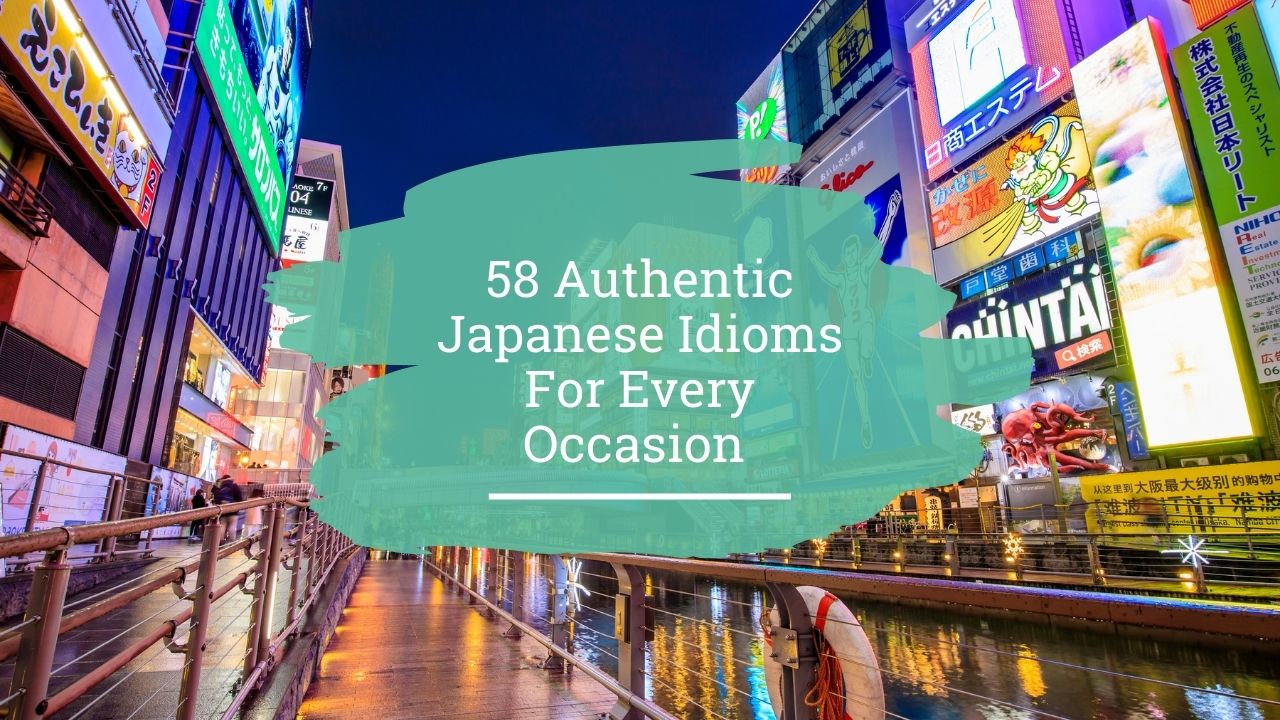Learning Japanese is about more than just learning some vocabulary words.
In fact, if you’ve been working on your Japanese and are still unsure about why you can’t quite get your sentences to sound exactly native, you might be wondering what you’re missing.
If you haven’t considered adding Japanese idioms into your vocabulary just yet, this could be the next step that you need in order to level up your Japanese and take that next jump toward fluency.
By the way, if you want to learn Japanese fast and have fun while doing it, my top recommendation is Japanese Uncovered which teaches you through StoryLearning®.
With Japanese Uncovered you’ll use my unique StoryLearning® method to learn Japanese naturally through story… not rules. It’s as fun as it is effective.
If you’re ready to get started, click here for a 7-day FREE trial.
Table of Contents
What Are Idioms, Anyway?

Idioms are one of those language snippets that you don’t know that you know until you really think about it. Cut yourself some slack—look, an idiom already!—and trust that you know more than you think you do.
Idioms are those phrases that are always set, and they often mean something entirely different than what the words themselves appear to say.
For example, “cut yourself some slack,” used earlier, doesn’t literally mean to cut some loose rope. It means to give yourself credit and avoid being too critical.
That’s an idiom—or, more formally, a group words that mean something that you wouldn’t really be able to discern from the words alone. Rather, culture itself has given these specific phrases unique meanings.
Unsurprisingly, English isn’t the only language to use idioms, and you can find a huge number of Japanese idioms as well. They work the exact same way, and many of them even translate similarly!
Why Learn Japanese Idioms?

Idioms are a very helpful part of learning any language.
Not only do they contribute to a perception of fluency and skill, because they get deeper into the cultural bedrock that created them, but they also allow you to convey ideas more accurately and with greater nuance in fewer words.
Which is easier to say:
“I won’t beat around the bush” or “I have something to say that is awkward and potentially uncomfortable for both of us, but I don’t really want to keep it to myself, and I feel that it needs to be shared, so I’ll just get it over with and hope you don’t have a bad reaction”?
Idioms really cut down on, well…that!
The 58 Top Idioms To Learn In Japanese

Japanese is chock full of idioms, some of which are unique to the culture and some of which are borrowed from other places.
Check out the following 58 Japanese idioms as a great place to get started.
Japanese Idioms About Food & Drink
#1 鯛も一人はうまからず (たいもひとりはうまからず) Tai mo hitori ha umakarazu
- Lit. “Even tai, when alone, isn’t delicious”
This one doesn’t have an English equivalent, so here’s what you need to know: tai is a type of Japanese seabream and a very appealing, classically delicious food.
However, the meaning of this phrase roughly translates to “If you eat it alone, even tai doesn’t taste good.”
In other words, the company you keep can bring you happiness, and if you’re alone, even the best things in the world are less good because you don’t have your family and friends with you to share them.
#2 花より団子 (はなよりだんご) Hana yori dango
- Lit. “Dangos over flowers”
Dangos are soft Japanese rice cakes or dumplings, often sweet in nature.
While both dangos and flowers might smell good and look appealing, you can actually eat dangos. Flowers, not so much. Thus, this idiom was born, which means essentially “function over beauty.”
#3 朝飯前 (あさめしまえ) Asa meshi mae
- Lit. “Before breakfast”
- Idiom: Piece of cake
The literal meaning of this idiom, “before breakfast,” comes from the idea that something is so simple that you can just knock it out right away, before you’ve even had breakfast. This means that the task is something simple, at least for you. No problem!
#4 秋茄子は嫁に食わすな (あきなすはよめにくわすな) Aki nasu ha yome ni kuwasuna
- Lit. “Don’t feed autumn eggplants to your bride”
There is some variance in how this idiom is used, even among Japanese people. Some people believe that, because eggplants don't have seeds in autumn, it's encouraged not to feed them to your wife because it will hamper her fertility.
Others believe that eggplants that grow in autumn are the most delicious, and so you should not give them to your wife because she will enjoy them too much and will not have any affection left for you.
#5 への河童 (へのかっぽ) He no kappo
- Lit. “The fart of a cucumber”
- Idiom: Easy peasy
The fart of a cucumber surely wouldn’t be a historic event, right? It’d be tiny and pathetic and you wouldn’t even notice it. That’s why this idiom means “simple,” as in something that is easy to do. It’s a cinch.
#6 我田引水 (がでんいんすい) Gaden insui
- Lit. “Drawing water for your own field”
- Idiom: Looking out for number one
The concept behind this idiom implies that you are primarily concerned with keeping your own field watered. In other words, you are most worried about yourself first and foremost, even if that comes at the expense of others.
#7 弱肉強食 (じゃくにくきょうしょく) Jakuniku kyoushoku
Lit. “The weak are meat, the strong eat”
Idiom: Survival of the fittest
While “survival of the fittest” is less an idiom and more just a common phrase, it refers to the same principle noted in this Japanese utterance. The strong live by feeding on the weak, and the weak exist in order to feed the strong.
This can happen in its truest sense in nature, when a predator animal captures prey, but it can also refer to, for example, a cunning business executive manipulating his way into a promotion by sabotaging his coworkers.
#8 酔生夢死 (すいせいむし) Suisei mushi
- Lit. “Get drunk on life, dream of death”
- Idiom: Idle your life away
The direct meaning of this idiom is simply that you spend so much of your time idle and not accomplishing anything important to you that suddenly, your whole life seems like a dream and you’ve already reached the end.
Japanese Idioms About Animals

#9 虎穴に入らずんば虎子を得ず (こけつにいらずんばこじをえず) Koketsu ni irazunba koji wo ezu
- Lit. “You will not get the tiger’s cub without entering into the tiger’s den”
- Idiom: Nothing ventured, nothing gained
This idiom, which also exists in English, means that you may need to do something dangerous or difficult in order to achieve something worthwhile. In other words, if you don’t try, you can’t expect results.
#10 井の中の蛙大海を知らず (いのなかのかわずたいかいをしらず) I no naka no kawazu taikai wo shirazu
- Lit. “The frog in the well doesn’t know about the vast ocean”
There is no direct equivalent of this idiom in English, but the meaning is relatively clear: someone who is trapped in a set of circumstances will not be able to understand what’s going on outside of that situation.
For example, if a person who lives a relaxed and happy but financially limited life in the countryside is trying to convince a salaryman from Tokyo to give up his large income in exchange for more free time, both parties may look at the other and say, 井の中の蛙大海を知らず.
Each person in that situation cannot possibly understand the wide open world of possibility that is, well, everything else outside of their current experience.
#11 明日のことを言うと天井のネズミが笑う (あしたのことをいうとてんじょうのねずみがわらう)Ashita no koto wo iu to tenjou no nezumi ga warau
- Lit. “When I talk about tomorrow, the mice in the ceiling laugh”
Perhaps the closest English phrase to reflect this idea is “Men make plans, and God laughs.”
This idiom means that you can't predict what will happen tomorrow, and so to try to do so is pointless. Something unexpected could always happen.
#12 猿も木から落ちる (さるもきからおちる) Saru mo ki kara ochiru
- Lit. “Even monkeys fall from trees”
- Idiom: Pride comes before a fall
The English equivalent is roughly related here. The meaning implies that even if you are good at something, you can make mistakes, and so you shouldn't be cocky.
This idiom can also imply that someone who seems very suited for a task may not actually be as good at it as you may expect.
#13 猫に小判 (ねこにこばん) Neko ni koban
- Lit. “Giving a gold coin to a cat”
- Idiom: Don’t cast your pearls before swine
A koban is an old type of Japanese golden coin. Thus, this idiom means giving a gold coin to a cat. However, its meaning doesn't directly mean that you shouldn’t give your furry friend a hoard of money.
Rather, not casting your pearls before swine (or not giving your coin to the cat) means that you should be aware of the value of what you have and share it only with those who are worth it.
This can refer directly to possessions, but it may also address intangible things like your affections. Giving something valuable to someone who can’t appreciate or understand its value is a waste—just like giving a valuable piece of gold to a cat.
#14 一石二鳥 (いっせきにちょう) Isseki nichou
- Lit. “One stone, two birds”
- Idiom: Kill two birds with one stone
This phrase is fairly common in English, and it is preserved almost the same in Japanese.
Killing two birds with one stone doesn't mean literally going outside and hitting birds with rocks; rather, it means that you are being efficient, getting multiple things done at one time instead of as separate steps.
#15 羊頭狗肉 (ようとうくにく)Youtou kuniku
- Lit. “Sheep’s head and dog’s meat”
- Idiom: Cry wine and sell vinegar
Even many English speakers are not familiar with this idiom about deceptive advertising.
The essence of the story is that a person who advertises using a sheep’s head (presumably selling lamb) is actually selling lower quality dog meat.
In other words, you don’t get what you pay for, and you’ve been deceived by the seller falsely advertising.
#16 蛙の子は蛙 (かえるのこはかえる) Kaeru no ko ha kaeru
- Lit. “The child of a frog is a frog”
- Idiom: The apple doesn’t fall far from the tree
In both English and Japanese, there is an idiom to express that children often take after their parents, and that this is to be expected.
You may also associate this with the phrase “like father, like son.” Children will often act just like their parents, and similarities will generally be obvious.
#17 二兎を追う者は一兎をも得ず (にとをおうものはいっとをもえず) Nito wo ou mono ha itto wo mo ezu
- Lit. “If you run after two hares, you will catch neither.”
This proverb actually exists in English in this same translated form, so you may have heard it before.
It is related to “a bird in the hand is worth two in the bush,” which means that it’s better to go for one thing and be sure to get it than to go after multiple things and end up with none of them.
This idiom shows that if you divide your attention, you are less likely to succeed. Focus on achieving one thing and be happy with that success rather than thinking about the success you would have had if you succeeded at every single thing.
#18 能ある鷹は爪を隠す (のうあるたかはつめをかくす) Nou aru taka ha tsume wo kakusu
- Lit. “A hawk with skill hides its claws”
- Idiom: He who knows most says least
Various ideas capture the meaning behind this Japanese idiom. It generally means not to show off and that you should not assume the talents of others based only on what you see.
Expect the unexpected when it comes to being one-upped by others, because they may be extremely skilled and just aren't showing it. It's also an encouragement to be humble yourself.
Japanese Idioms About The Body

#19 腹八分に医者いらず (はらはちぶにいしゃいらず) Hara hachi bu ni isha irazu
- Lit. “If the stomach is at 80%, you won’t need a doctor”
- Idiom: Everything in moderation
This idiom arises from a Japanese cultural and historical assumption that a healthy way to eat and manage your weight is to eat until you are “80% full.”
So in other words, this idiom is saying that if you abide by this principle and only eat until you’re mostly full instead of completely stuffed, you won’t need to see the doctor often because you’ll be healthy!
#20 口が滑る (くちがすべる) Kuchi ga suberu
- Lit. “The mouth slips”
- Idiom: A slip of the tongue
English has a variety of idioms that mean the same thing as this one, such as letting the cat out of the bag or spilling the beans.
This idiom means that you have revealed information that you shouldn’t have, either entirely by accident or in a way that wasn’t as discreet and secret as you intended. Oops!
#21 異体同心 (いたいどうしん) Itai doushin
- Lit. “Different bodies, one heart”
- Idiom: Of the same mind
Being of the same mind as someone else doesn't literally mean you share minds, of course. What it does mean is that, in the words of another idiom, you’re “on the same page.”
You think similarly, and so even though you are two different people, you act in harmony with each other and work together well.
#22 頭に来る (あたまにくる) Atama ni kuru
- Lit. “The head comes”
This is a great example of an idiom that can’t be discerned by the sum of its parts. This phase is commonly used to convey that you’ve lost your cool, become exceptionally angry, or are highly offended.
#23 会わせる顔がない (あわせるかおがない) Awaseru kao ga nai
- Lit. “No face to expose”
On the surface level, this idiom appears to indicate a situation in which someone doesn't feel presentable enough to meet someone.
In a similar vein, its real meaning is that you are too ashamed to meet someone or that you are having doubts about whether you are in a position to speak with someone.
#24 口が軽い (くちがかるい) Kuchi ga karui
- Lit. “The mouth is light”
- Idiom: Having a loose tongue
Having a loose tongue or a light mouth does not literally mean that there’s something wrong with your face—instead, it indicates that you often talk without thinking first. Someone whose “mouth is light” typically can't keep a secret and is very talkative.
#25 のどから手が出る (のどからてがでる) Nodo kara te ga deru
- Lit. “As much as my hands would come out of my throat”
- Idiom: So much I can taste it
Summed up, the meaning of this idiom is “desperately.” If you want something so much that you can taste it or so much that your hands shoot out of your throat, you must want it pretty badly.
#26 大目玉を食らう (おおめだまをくらう) Oo me dama wo kurau
- Lit. “To get scolded severely”
This idiom, which in its most basic form talks about the big orbs that are your eyes, means to be yelled at such that you are very uncomfortable.
#27 手を抜く (てをぬく)Te wo nuku
- Lit. “To skip the hands”
- Idiom: To cut corners
This idiom means to do shoddy work; you’ve completed a task so poorly it’s not even evident that you used your hands at all. No literal cutting of corners needed.
#28 勇み足 (いさみあし) Isami ashi
- Lit. “Brave leg”
This one is not really an idiom in English. Instead, it conveys a meaning of overeagerness, like you just can’t stop your legs from stepping forward.
It implies rashness, that you are quick to jump into action without thinking, and is generally a negative quality.
#29 腹が立つ (はらがたつ) Hara ga tatsu
- Lit. “The stomach stands up”
- Idiom: To raise his hackles
Both the English and Japanese variants don’t make too much sense in a literal way; instead, both mean to become angry or furious. Usually it's anger that arises out of some sort of offense taken.
#30 案ずるより産むが易し (あんずるよりうむがやすし) An zuru yori umu ga yasushi
- Lit. “It’s easier to bear a child than worry about it”
- Idiom: Doing something is easier than worrying about it
Another standalone idiom, this phrase implies that people tend to spend so much time worrying about something that it would have been easier just to do that thing and get it over with after all the effort you spent worrying.
Japanese Idioms About The Weather & Nature

#31 明日は明日の風が吹く (あしたは あしたのかぜがふく) Ashita ha ashita no kaze ga fuku
- Lit. “The winds of tomorrow will blow tomorrow”
- Idiom: Let tomorrow worry about itself
This idiom also exists in English, albeit in a slightly different form. Saying this means that you shouldn’t worry about tomorrow while it’s still today, because all of the things that will happen tomorrow will happen, well, tomorrow.
There’s nothing you can do about them right now. It can also mean that once today is over, tomorrow is completely full of its own new events; this can bring a hopeful perspective if you’ve had a bad day.
#32 雨降って地固まる (あめふってじかたまる) Ame futte ji katamaru
- Lit. “After the rain, the earth becomes firm”
- Idiom: What doesn’t kill you makes you stronger
English has an idiom that is vaguely related to this one’s idea. When you face adversity and come out on the other side, you’ll come out stronger for having gone through it.
#33 見ぬが花 (みぬがはな) Minu ga hana
- Lit. “Not looking is flowers”
There is no direct correlation here with English, but the meaning within this idiom is that your imagination is always going to be better than reality.
If you’re “not looking” at reality, it’ll be “flowery” and good—or at least that’s the implication. Perhaps the most common English similarity is “fantasy trumps reality.”
#34 海千山千 (うみせんやません) Umisen yamasen
- Lit. “Thousand oceans, thousand mountain”
- Idiom: Sly old dog
This phrase can be particularly confusing because it originally came from Chinese, and its meaning is not discernable directly from its characters.
It originated in the Chinese mythology that describes how a snake, after living for 1000 years in the mountains and then 1000 years in the oceans, would become a dragon.
The presumption is that even if someone is old, they may outmatch you or take you by surprise, and you shouldn't underestimate them just because of their age.
#35 蓼食う虫も好き好き (たでくうむしもすきずき) Tade kuu mushi mo sukizuki
- Lit. “Eating nettles or bugs is a matter of taste”
- Idiom: There’s no accounting for taste
English has a very similar idiom for this one, and it comes down to the ability to objectively resolve conflict.
This phrase means that when it comes to issues about what people subjectively like and dislike, many people have very different opinions from others.
No matter how different those opinions are, it will always be impossible to resolve conflicts or disagreements about them objectively, because they are just subjective matters of taste.
You can't objectively convince someone that ramen is better than sushi if they don't like sushi and like ramen.
#36 月とスッポン (つきとすっぽん) Tsuki to suppon
- Lit. “The moon and a turtle”
- Idiom: Night and day
If two things are extremely different, you might refer to their differences in English as “night and day.”
This implication of “opposites” or two similar things that are actually very different is the same idea being encapsulated with the concept of the moon and a turtle—two round things that, upon closer inspection, are really nothing alike.
#37 郷に入っては郷に従え (ごうにいってはごうにしたがえ) Gou ni itte ha gou ni shitagae
- Lit. “When entering the countryside, take it with you”
- Idiom: When in Rome, do as the Romans do
Another fairly common Japanese idiom, this one means to assimilate yourself into whatever situation you’re in. Copy the people around you and just give it your best shot.
It can be used to excuse your behaviour if you don’t know what you’re doing, but most commonly, this idiom is tossed around when you are about to do something you normally wouldn’t just because others around you are doing it.
Famous Japanese Idioms

#38 相変わらず (あいかわらず) Ai kawarazu
- Lit. “Together, unchanging”
If there is one idiom you’re most likely to hear in Japanese, it’s probably this one. This idiom means “the same as ever” or just “as usual,” and it’s one of the most common responses to “how are things going for you?”
It can also be used when referencing people’s habits and routines, especially in a comical or poking fun way, à la “Where is Takeshi?” “Ugh, at the gym, as usual.”
However, ai kawarazu is almost always used either directly at the beginning of a sentence or on its own, often after an exasperated pause.
#39 七転び八起き (ななころびやおき) Nana korobi ya oki
- Lit. “Seven times fallen, eight times standing”
- Idiom: Don’t throw in the towel
The English idiom is related only in meaning to this Japanese version, which abstractly tells the tale of being knocked over seven times and standing up again eight times.
In other words, each time you get knocked down, you stand up again and keep going. This is an idiom that, at its core, means “never give up.”
#40 出る杭は打たれる (でるくいはうたれる) Dekiru kui ha utarereu
- Lit. “the post that can be will be struck”
- Idiom: The nail that sticks out will be hammered down
This phrase in Japanese works just like it does in English. It's used by itself as a full sentence, and its meaning equates to “if you stand out, you’ll face more resistance or criticism than others who don’t stand out as much.”
Japanese Idioms About Religion
#41 天下り (あまくだり) Amakudari
- Lit. “Descending from heaven”
This turn of phrase refers to the phenomenon in which a high-ranking official (that’s the “heaven” part) moves from their position to take a profitable job at a private company.
These people are often treated with immense respect and fawning despite being forcibly ousted from their position, which leads to the somewhat condescending or disgruntled tone of this idiom. In English, this may be referred to as a fall from grace.
#42 知らぬが仏 (しらぬがほとけ) Shiranu ga hotoke
- Lit. “Not knowing is Buddha”
- Idiom: Ignorance is bliss
This common idiom means that if you don’t know something, you’re probably not worried about it, and so you’ll be happier as a result.
The Japanese version includes hotoke, the word for Buddha, as its example of enlightenment and peace resulting from this lack of worry.
#43 門前の小僧習わぬ経を読む (もんせんのこぞうならわぬきょうをよむ) Monsen no kozou narawanu kyou wo yomu
- Lit. “A temple boy by the gate will recite sutras without learning”
There is no English equivalent for this phrase, but the image it describes paints a stark picture.
If a boy spends his whole life by the temple gates selling things, he will soon be able to recite all of the sutras that the monks read each day from memory without trying.
In other words, you learn from what is around you without even realising it. Be careful of the company you keep; it’s sort of an “you are what you eat” metaphor.
Japanese Idioms With No English Equivalent

#44 起死回生 (きしかいせい) Kishi kaisei
- Lit. “Revival from the edge of death”
There is no direct English equivalent of this phrase, which means that you have been saved at the last moment. Most commonly, it refers to recovering from a situation that seemed hopeless.
#45 花鳥風月 (かちょうふうげつ) Kachou fuugetsu
- Lit. “Flower, bird, wind, moon”
This idiom also doesn't have an English equivalent, but it encapsulates a specifically Japanese idea about nature.
These items listed are common thematic stand-ins for the concept of “nature” in Japanese culture and art, and so listing all four of these back to back gives the impression of “the wonders of nature.”
This idiom can be used to express natural beauty of an unspecific nature, like looking over a vast forest and seeing the trees, animals, the environment, wind, sky, and everything else come together into a single, unified, beautiful whole.
#46 会者定離 (えしゃじょうり) Esha jouri
- Lit. “Those who meet must part”
There is no English equivalent for this phrase, but it means life is transient—just a thing that happens for a short time.
That means that everyone you meet, you are guaranteed to leave at some point. Everybody who ever meets someone else will eventually part with that person forever. Life is short and unpredictable.
Japanese Idioms To Do With Time

#47 一日一歩 (いちにちいっぽ) Ichinichi ippo
- Lit. “One day, one step”
- Idiom: One day at a time
This idiom refers to the practice of approaching difficult situations or times in your life by breaking things down into approachable pieces.
The concept of “one day at a time” means that you focus on getting through today, and then tomorrow you focus on getting through tomorrow, and so on, day by day.
#48 温故知新 (おんこちしん) Onko chishin
- Lit. “Review the past, know the future”
- Idiom: Forewarned is forearmed
English has an equivalent idiom, but you may be even more familiar with the phrase “history repeats itself.”
This phrase means that if you look back at what happened in the past and learn from it, you will likely be able to predict what will happen and the future and be prepared for it.
#49 一期一会 (いちごいちえ) Ichi go ichi e
- Lit. “One time, one meeting”
- Idiom: Once in a lifetime
This phrase, which originated within the tea ceremony culture of Japan, refers to an event that occurs “this one time only and never again”—in other words, a once in a lifetime experience that should be cherished as such.
Miscellaneous Japanese Idioms

#50 美人薄命 (びじんはくめい) Bijin hakumei
- Lit. “Beautiful person, short life”
- Idiom: The beautiful die young
As this idiom would suggest, the meaning behind it is that beautiful people often seem to be particularly unlucky. Good fortune and beauty often don't go hand in hand.
This likely at least partially refers to how so many celebrities seem to die younger than average—when in fact it is merely our higher than average level of attention on them that makes it seem so.
#51 負けるが勝ち (まけるがかち) Makeru ga kachi
- Lit. “Losing is winning”
- Idiom: He who fights and runs away lives to fight another day
The literal meaning of this idiom, that losing is winning, may not appear to make very much sense.
However, it is meant to be taken as a proverb suggesting that you pick your battles carefully and stop while you’re ahead. Know when to call it quits so that you can try again later.
#52 覆水盆に帰らず (ふくすいぼんにかえらず) Fukusuibon ni kaerazu
- Lit. “It can’t return to the spilt water tray”
- Idiom: There’s no use crying over spilled milk
The Japanese version of this idiom uses water instead of milk, but the principle is the same: what’s done is done.
You can’t pick milk (or water) up and put it back in its container once it’s spilled out, so there is no use being upset about it because it’s already over.
#53 馬鹿は死ななきゃ治らない (ばかはしななきゃなおらない) Baka ha shinanakya naoranai
- Lit. “Idiots won’t get better without dying”
- Idiom: Once a fool, always a fool
The translation of this idiom may be better relayed as “idiots will only be cured when they die.”
When someone is a fool, they will continue to act like a fool, and the only thing that will stop this behavior is their literal death.
This is often said in either a joking way among friends or as a direct jab at a person who is behaving in an unwanted and seemingly foolish manner, of whom such behavior is characteristic.
#54 武士は食わねど高楊枝 (ぶしはくわねどたかようじ) Bushi ha kuwanedo takayouji
- Lit. “The samurai picks his teeth without eating”
- Idiom: Keep a stiff upper lip
The meaning of this one is a bit buried in the idiom itself. Takayouji means leisurely picking of the teeth with a toothpick after a meal. However, this idiom describes a samurai who hasn't eaten.
In other words, the samurai cleans his teeth anyway, as if he had eaten, because he takes glory and pride in his poverty.
The English idiom maintains a similar meaning—that you should remain steadfast in the face of adversity.
#55 悪銭身に付かず (あくせんみにつかず) Akusenmi ni tsukazu
- Lit. “Not attached to ill-gotten money”
- Idiom: Easy come, easy go
The idea behind this Japanese idiom is that if you acquire money without working for it, you won’t be hesitant to spend it because you don’t have a perception of how hard it was to attain.
This phrase does not have to only describe money, though; you can use it to talk about anything that came and went without much resistance.
#56 因果応報 (いんがおおほう) Inga ouhou
- Lit. “Fate and retribution”
- Idiom: Just deserts
The English phrase (which, unbeknownst to many, is typically incorrectly spelled as “just desserts”) refers to a duly or appropriately deserved reward.
However, in both English and Japanese, this phrase is most commonly used to refer to a time in which a person “got what was coming to them”—another idiom that means someone gets what they deserve.
Karma, fate, whatever you’d like to call it, someone has been paid back—for good or ill—by the universe itself based on their past actions.
#57 自業自得 (じごうじとく) Jigou jitoku
- Lit. “One’s work, one’s profit”
- Idiom: You reap what you sow
In a similar vein as the previous idiom, this one also means that you will receive what you deserve, either good or bad. If you plant the seeds, don’t be surprised when they sprout! If you put in the work, you can expect to receive the results of that work.
#58 十人十色 (じゅうにんといろ) Juu nin to iro
- Lit. “Ten people, ten colours”
- Idiom: Different strokes for different folks
Like the idiom in English, this phrase implies that if you asked ten people what their favorite colours were, you’d get ten different answers.
This turn of phrase means that everybody is different and has their own likes, dislikes, and way of seeing the world. What works for someone else might not work for you!

Japanese Idioms FAQ
What is a famous Japanese catchphrase?
A well-known Japanese catchphrase is いただきます (Itadakimasu), which means “I humbly receive” and is said before eating.
Another famous one is お疲れ様です (Otsukaresama desu), used to acknowledge someone’s hard work.
What is a Japanese idiom?
A common Japanese idiom is 猿も木から落ちる (Saru mo ki kara ochiru), meaning “Even monkeys fall from trees,” which implies that even experts make mistakes.
Japanese idioms often use nature and animals to convey wisdom.
How do you say “I love you” in Japanese poetic way?
A poetic way to say “I love you” in Japanese is 君のために月を取ってあげたい (Kimi no tame ni tsuki o totte agetai), meaning “I want to take the moon for you.”
Another romantic phrase is 君は僕の心の光 (Kimi wa boku no kokoro no hikari), meaning “You are the light of my heart.”
What is the most famous Japanese proverb?
One of the most famous Japanese proverbs is 七転び八起き (Nana korobi ya oki), meaning “Fall seven times, stand up eight.” It symbolizes perseverance and resilience in the face of challenges.
Level Up Your Japanese With Japanese Idioms

These Japanese idioms are a great place to start in Japanese.
And one of the advantages of Japanese idioms is that, like their English counterparts, the vast majority of them exist as independent sentences that are used on their own.
That means very little in the way of Japanese conjugation; just toss out an idiom and off you go!
The best way to practise these new phrases is not to learn this list by heart, but rather to apply the StoryLearning® method and immerse yourself in stories so you see these idioms in context. That way, you'll pick them up and start using them naturally.
You’ll find that with a little bit of practice on some of your favourite Japanese idioms, your Japanese language skill has progressed even more toward total fluency.

Olly Richards
Creator of the StoryLearning® Method
Olly Richards is a renowned polyglot and language learning expert with over 15 years of experience teaching millions through his innovative StoryLearning® method. He is the creator of StoryLearning, one of the world's largest language learning blogs with 500,000+ monthly readers.
Olly has authored 30+ language learning books and courses, including the bestselling "Short Stories" series published by Teach Yourself.
When not developing new teaching methods, Richards practices what he preaches—he speaks 8 languages fluently and continues learning new ones through his own methodology.










































